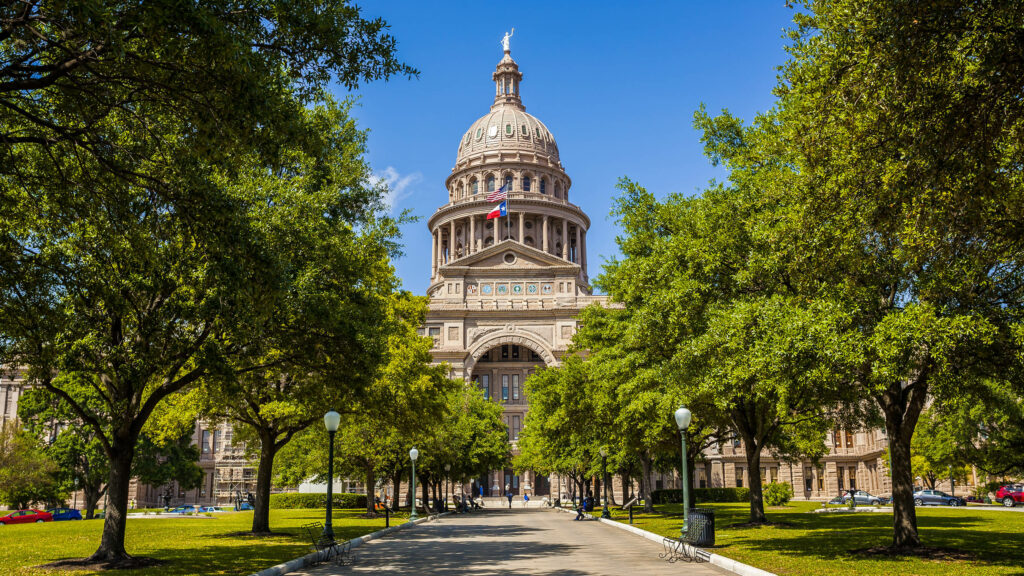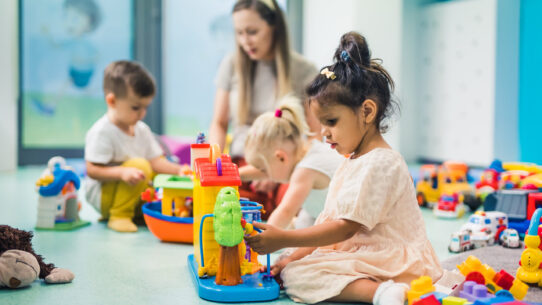
After 20 weeks of early mornings, grueling days, and late nights, the 89th session of the Texas Legislature ends today.
We’re excited about some of the steps lawmakers took to support children, particularly through the financial investments they made. They made an historic $100 million commitment to child care, infused $8.5 billion into public schools, invested in overhauling outdated technology in the state’s Medicaid and SNAP application system, improved funding for mobile youth crisis teams and other children’s mental health services, and, for the first time, devoted state funding to continue the Texas Family First pilot program to keep kids safely out of foster care. Legislators also passed a suite of bills to support older youth in foster care, legislation to improve support for breastfeeding, a bill for newborn babies’ health coverage, and key child care proposals, including legislation to boost access to child care for child care educators.
However, we’re disappointed that other important proposals with momentum fell short of passing — and we’re concerned that some legislation that did pass will pose new challenges in key policy areas, such as pre-k.
Today we’re publishing a preliminary session recap report breaking down the key bills for Texas kids that passed and the ones that fell short. The report covers the most significant bills regarding Early Learning, Healthy Families, Child Protection, and Children’s Mental Health.
In a few weeks, we’ll publish an updated final report on the session. We’ll also have an announcement soon about our upcoming briefing on the session.
In the meantime, here’s a brief look at some of the big stories from the session in the policy areas where we are focused.
Early Learning
We are thrilled that the Legislature approved an additional $100 million for more child care scholarships — a policy priority that our staff has tirelessly championed. These scholarships, provided by the Texas Workforce Commission, have proven to be very effective in helping low-income Texas parents go to work and find high-quality child care for their kids, but 95,000 families are on the waiting list for a scholarship. The new funding means thousands of additional families will now get a scholarship. We are particularly thankful to Speaker Dustin Burrows, Chair Greg Bonnen, Chair Armando Walle, and Chair Joan Huffman for their leadership on this issue.
We’re also excited that lawmakers passed a package of other important bills to improve access to high-quality child care. SB 462, for example, will improve the supply of child care by helping child care educators secure care for their own kids. HB 2310 will bring together key state agencies to develop a plan to improve early learning opportunities for young children with disabilities.
Beyond child care, it was a busy, contentious session for education policy. The Legislature approved a number of sweeping education bills, including a bill to launch a new Education Savings Account program and legislation to provide a much-needed $8.5 billion investment in public schools.
That funding bill, HB 2, includes several pre-k provisions. It acknowledges that the state directly funds only half of the full day of pre-k that school districts are required to provide to eligible children. To begin to address that gap, the bill changes the distribution of existing Early Education Allotment funding so that it is partly based on pre-k attendance. While the original version of the bill extended pre-k eligibility to include kids with disabilities, we’re disappointed that legislators ultimately removed that provision from the bill. Unfortunately, HB 2 also creates potential roadblocks for tuition-based pre-k and the construction of new pre-k classrooms. We’ll need to closely monitor the implementation of these provisions. We also need to keep an eye on a concerning provision that passed in HB 6 to allow for expanded use of out-of-school suspensions in pre-k through second grade.
Healthy Families
We are grateful that lawmakers approved two of our top budget recommendations for the session: a major investment in overhauling old technology in the state’s Medicaid and SNAP application system so it actually functions properly for families, and an $18 million increase for the biennium to account for the rising number of infants and toddlers who need Early Childhood Intervention (ECI) services.
They also passed a handful of important health care bills. HB 136 will improve support for breastfeeding by covering lactation services under Medicaid health insurance. Many newborn babies eligible for Medicaid health insurance are not getting enrolled in a timely manner, but HB 3940 will now begin to address that challenge. HB 713 will allow the state’s Maternal Mortality and Morbidity Review Committee to study maternal deaths in a more timely manner.
Unfortunately, other critical health care bills that passed the Texas House came up short in the Senate. For example, under HB 321, the state would have notified parents if their uninsured kids were confirmed eligible for Medicaid health insurance based on a SNAP application. HB 1201 would have created a pilot program to cover doula services under Medicaid.
These health care debates took place in the shadow of the disturbing Medicaid and SNAP cuts that Congress is aiming to pass. Current estimates suggest the federal bill would leave 430,000 more Texans uninsured and eliminate or reduce SNAP food benefits for 800,000 Texans.
Child Protection and Children’s Mental Health
Reducing the number of children who enter foster care because of their unmet mental health needs was one of our top priorities this session. We’re pleased that lawmakers appropriated $23 million in state funding to continue the Texas Family First pilot program, as federal funding is set to expire. They also made thoughtful, incremental expansions to the programs that will help more children stay safely with their families.
Legislators modestly increased funding for children’s mental health, including an additional $40 million for mobile youth crisis outreach teams, and passed HB 5342 to create a trust fund supporting both mobile crisis and the state’s 988 Suicide & Crisis Lifeline. To support youth with high needs in foster care, lawmakers also approved a small funding increase in the DFPS budget for behavioral health services and a new peer support program. Unfortunately, legislators failed to allocate additional funding for YES Waiver mental health services for kids. They also failed to pass bills to extend Medicaid coverage to include intensive mental health services for children who need care beyond therapy but less than full hospitalization.
After years of expanding Community-Based Care, this session lawmakers focused on improving accountability, oversight, and contract enforcement. Lawmakers also provided $59.5 million through HB 500 for a long-overdue overhaul of the state’s foster care data and case management system to boost child safety and address concerns raised in the federal lawsuit. The Legislature also passed three key bills to support older youth in foster care: extending free college tuition age limits (HB 1211), improving life skills education (HB 4655), and preventing case closure when youth run away (SB 2165). Additionally, lawmakers began discussing major reforms to strengthen parents’ rights and due process in CPS cases but did not pass these reforms or the critical funding needed to ensure legal representation for families in these cases.
Moving Forward
While the results of the session are a mixed bag for Texas kids and families, I couldn’t be more proud of our staff, our partners, and the Texas families who shared their stories with legislators. Working together, we helped pass legislation, build momentum for policies we can get over the finish line next time, influence bills through committee testimony and one-on-one conversations, and, in a few cases, keep potentially harmful policy ideas from moving forward. We’re also deeply grateful to the lawmakers and staffers who worked tirelessly throughout the legislative session.
We will continue to analyze what passed this session, share that information with you, monitor and shape the implementation of bills that passed, and build on the momentum from this session.
But first, we’re going to take a day or two to catch our breath after a long session. I hope you do, too. Thank you for your partnership on this difficult journey to ensure that Texas children from every zip code thrive and reach their full potential.
Texans Care for Children gratefully acknowledges the Alliance for Early Success, The David and Lucile Packard Foundation, Episcopal Health Foundation, Hogg Foundation for Mental Health, J.B. and M.K. Pritzker Foundation, Methodist Healthcare Ministries of South Texas, Inc., Powell Foundation, and St. David’s Foundation for their financial support of this publication. The opinions expressed in this document are those of Texans Care for Children and do not necessarily reflect the views of any financial supporters.



